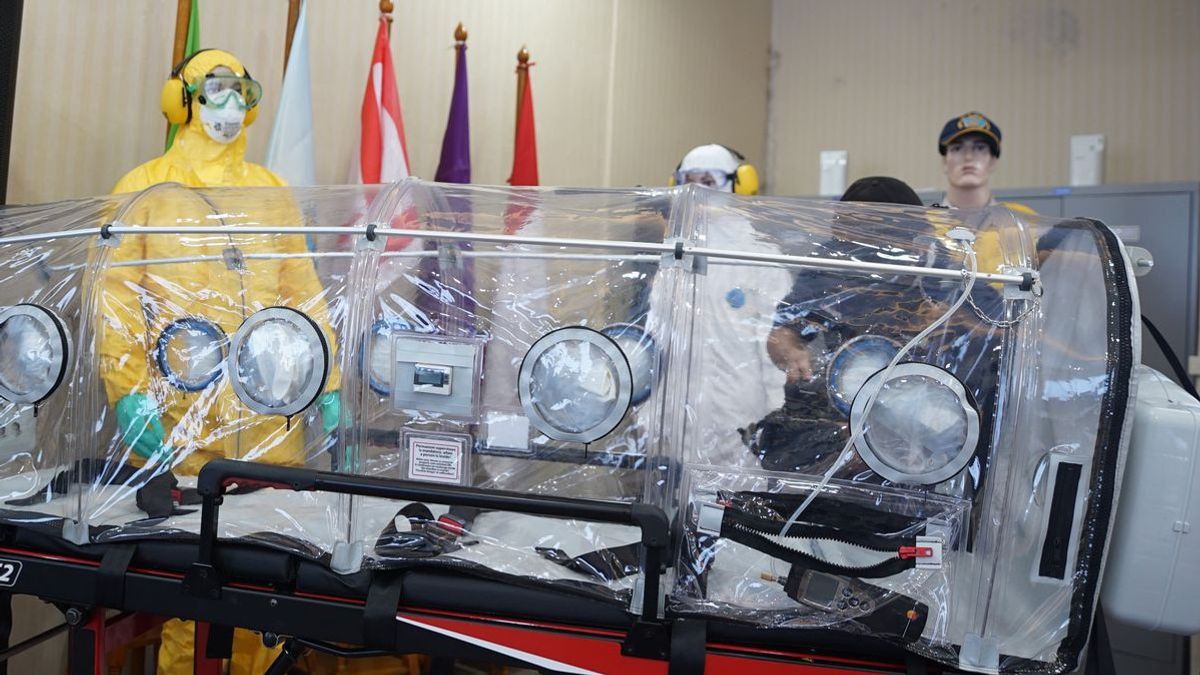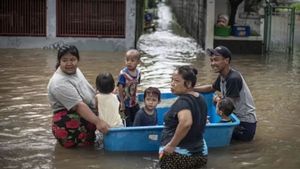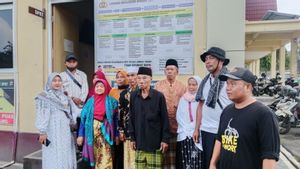JAKARTA - People in a number of areas have rejected the funeral of a positive patient with the corona virus or COVID-19. This refusal was based on because they did not want to contract the virus.
University of Indonesia psychologist Kassandra Putranto considers this rejection due to the lack of education and information on handling patient bodies related to COVID-19. In fact, the government has carried out procedures in handling this corpse.
"Some may be afraid because people's insights and competences are limited," said Kassandra to VOI, Wednesday, April 1.
Rejection acts like this were also reinforced by the spread of fake news. The fake news created excessive fear for the public. "Apart from the impact of hoaxes. Panic and anxiety are generally due to negative thinking," said Kassandra.
In addition, the sociologist Bayu A. Yulianto said that the government had conveyed the socialization related to the burial procedures for the COVID-19 body. However, the information conveyed only stopped and did not reach the local community.
"There was no prior outreach from the government to residents in the settlements around the cemetery, that there would be a positive COVID-19 body buried there. So that the knowledge of the residents was minimal, then there was rejection when they knew that a COVID-19 body would be buried there. "said Bayu.
He advised the central and local governments to provide education and information to the public regarding COVID-19. In addition, if possible, the government needs to provide a special burial place for those who died as a result of contracting COVID-19.
"The government can also make a special funeral for residents so that the burial process will be easier," said Bayu.
Minister of Religion Fachrur Razi has explained that the bodies of positive COVID-19 patients will be handled by a medical team from a referral hospital appointed by the government. As for the funeral, it can be carried out by the family after receiving directions from the hospital.
"The funeral officials must wear personal protective equipment for health workers such as plastic raincoats, then destroy them after the funeral," said Fachrur some time ago.
For those who are Muslim, the management of the corpse must still pay attention to the applicable provisions while still adjusting the procedures according to the hospital's instructions.
"For the implementation of the funeral prayers, it is recommended to do it at the referral hospital. If not, the funeral prayers can be done in mosques where a thorough sanitation inspection process has been carried out and prayers are carried out without touching the body," he explained.
In addition, there are several technical instructions from Fahcrur regarding the handling of corpses of corona virus patients, such as using protective clothing complete with gloves and masks, not eating and drinking in the body storage room or viewing area, avoiding direct contact, washing hands with soap or hand. -An alcohol-based sanitizer and cover the wound with a bandage or bandage.
Prior to burial, bodies with infectious diseases will be disinfected or sprayed with chlorine on the bodies and medical personnel, with the aim of avoiding the spread of the virus.
For burial, the Minister of Religion recommends that the burial location should be 50 meters from the source of groundwater used for drinking and 500 meters from the nearest settlement.
The body can be buried with a depth of 1.5 meters and then covered with soil as high as one meter. If there are other bodies that are to be buried, it is better if the bodies of COVID-19 patients are buried in a separate area. Furthermore, the burial ground must be handled carefully.
Meanwhile, for the bodies that want to be cremated, the location of the cremation must be about 500 meters from the nearest settlement. Cremation should also not be done on several bodies at once, the aim is to reduce smoke pollution.
Meanwhile, tools that have been used such as materials, chemicals, or personal protective equipment used during the funeral process can be disposed of in a safe place or burned. Then the disinfection process must be carried out again by medical personnel or the items used in the process of treating the body.
"The treatment of the corpse can increase the risk of spreading infectious diseases. However, as long as it is carried out according to safety and hygiene procedures, treatment of the corpse can actually help prevent further disease transmission," said Fachrur.
The English, Chinese, Japanese, Arabic, and French versions are automatically generated by the AI. So there may still be inaccuracies in translating, please always see Indonesian as our main language. (system supported by DigitalSiber.id)













